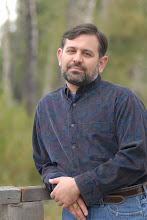In most studies researchers have not accounted for genetic differences in tumors.Therein, as Hamlet said, lies the rub. [the full soliloquy is at the end of this post] Ironically, Hamlet was fretting about the misery of long life, not a shortened life expectancy from cancer or other ailments.
Cancer research has yielded a lot of interesting results, such as elucidating the mechanisms of cancer growth, activity, metabolism, etc. Cancer research, and the organization of cancer trial working groups--particularly in pediatric oncology has led to impressive reduction of mortality of certain pediatric cancers. For example, ALL (Acute lymphocytic leukemia) used to have a 90% mortality and now it is down to 10% except in certain high risk groups. Sadly, though, there has been no overall reduction in cancer death in the US. In fact, even as the death from certain cancers have been reduced, other cancers, once rare, have become quite common.
Where cancer research has been lacking, and I say this with all due humility about very, very smart and dedicated researchers, has been in creating a global, dynamic and integrated understanding of cancer vis-a-vis the entire physiology and psychology of the individual. I am not referring to looking "estrogen" receptors or genetic markers. These are trees in the forest but not the forest itself. Genes need to act in a certain environment and having a gene in no way dooms you to have cancer. Conversely, not having the gene does not get you off the hook. I have a patient who has had recurrent breast cancer. She had a genetic survey done which said she had a lower than average risk of ever getting breast cancer.
I would add that there are two related errors that most cancer research has suffered from. First, it has become so reductionist, so mired in the fine details of mechanism, of the "how", that it cannot ask "why did this cancer come about?" And by "why?" I mean both physiologically, emotionally and spiritually.
Second, cancer studies in petri dishes (in vitro) and animals (in vivo) are so contrived and so far removed from the complex, decades-long dysfunction experienced before a cancer comes about that it is difficult to translate this research to an individual person with all the epic events of their life--birth, fear, hope, love, loss, illness, environmental pollution...
Experimental cancer treatments--even those using "natural" treatments use dosing far beyond what could be used in treatment that ceases to be practical. Many of the new treatments being trialed by drug companies hold out the promise of extending life by a few weeks but at huge costs. The article in the Times explores this very thoroughly, so I won't do so here.
If we wish to have a new approach to cancer, we must begin with the most Socratic of exercises: defining terms before any discussion occurs. So, what is cancer? The great killer? The barbarian at the gate? The feared stalker? He who cannot be named? We don't even know how to discuss it. In polite conversation, we lower our voice when we speak about someone who has cancer, then continue at our normal tone. Even in medical circles, we would refer to cancer as "CA" in front of patients or on medical exam forms.
So, what is cancer? Quite simply, cancer is the dysregulated growth of our own cells. That's it. That's fundamentally the struggle of life: regulation, dysregulation, a return to regulation and balance. If we don't go back to balance and regulation, we die.
A tacit assumption of cancer immunology has been that tumors express non-self or "foreign" antigens. The recent identification of a handful of potentially immunogenic cancer antigens shows that they are not truly foreign. Although the boundary between self and non-self is not well-defined, this first look at cancer antigens fits more with a self/altered self paradigm than with the non-self paradigm for antigens recognized in infectious diseaseI wish I said that, but it was Dr. Alan Houghton, Chairman of Immunology, Chief of Clinical Immunology, Memorial Sloan-Kettering Cancer Center and Head of Melanoma Disease Management, Cornell University in a 1994 article.
So, in many ways, we return to the play Hamlet, for cancer is like the character of Hamlet: the perpetual angst of adolescence asking "Who am I?" and unable to give a proper answer.
Cancer is not foreign to us. It is us. It is at some level, a confusion about who we are, why we are and where we are in time and space.
How pointless then, how nihilistic to declare war on ourselves. Isn't that how we got ourselves into this mess? So much hatred, anger, and destruction of our race, our country, our environment and now ourselves? Rather than a war on cancer, how about a space race to the furthest depths of our soul?
Addendum: Hamlet's Soliloquy
To be, or not to be: that is the question:
Whether 'tis nobler in the mind to suffer
The slings and arrows of outrageous fortune,
Or to take arms against a sea of troubles,
And by opposing end them? To die: to sleep;
No more; and by a sleep to say we end
The heart-ache and the thousand natural shocks
That flesh is heir to, 'tis a consummation
Devoutly to be wish'd. To die, to sleep;
To sleep: perchance to dream: ay, there's the rub;
For in that sleep of death what dreams may come
When we have shuffled off this mortal coil,
Must give us pause: there's the respect
That makes calamity of so long life
--Hamlet, in "Hamlet" by William Shakespeare




No comments:
Post a Comment